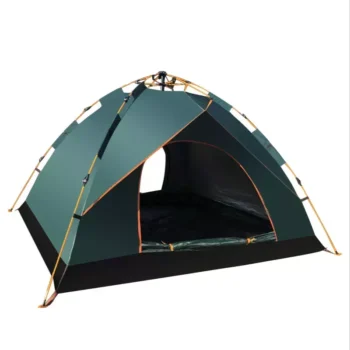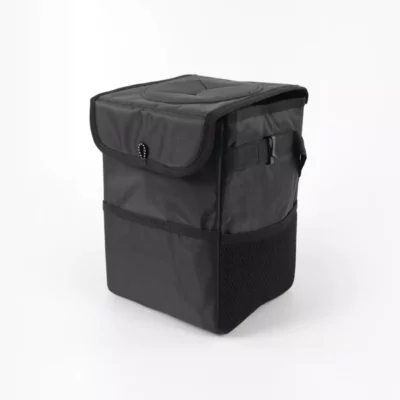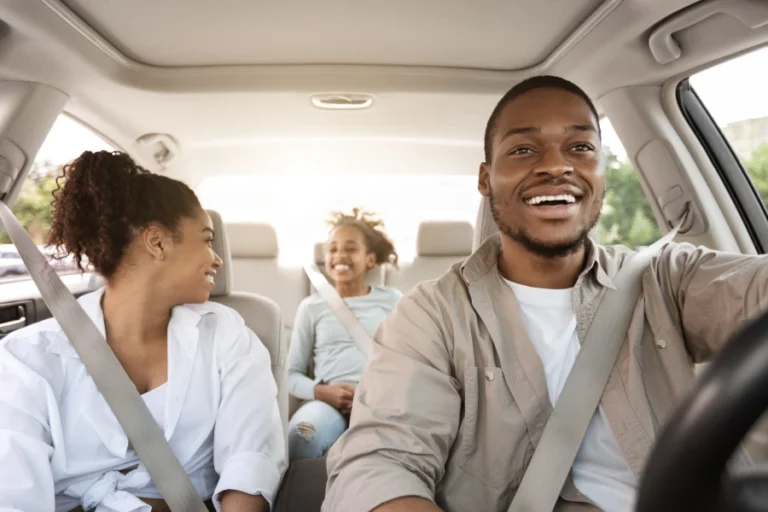Essential Safety Tips for a Secure Camping Experience
Camping is a wonderful way to disconnect from the daily grind and immerse yourself in nature. Whether you’re a seasoned camper or a newbie, safety should always be a top priority. Proper preparation and awareness can ensure a secure and enjoyable camping trip. Here are some essential safety tips to help you stay safe while camping.
1. Choose the Right Campsite
First tips for you safety camping experience is have a right campsite location. The location of your campsite plays a crucial role in your safety. Here’s what to consider when selecting a campsite:
- Proximity to Water: While it’s convenient to camp near water for drinking and washing, avoid setting up too close to prevent flooding and wildlife encounters.
- Flat Ground: Choose a level site to pitch your tent. Avoid low-lying areas where water can accumulate and create a soggy, uncomfortable campsite.
- Shelter from Wind: Look for natural barriers like trees or rock formations to protect your campsite from strong winds. Ensure the area is clear of dead trees or branches that could fall.
- Wildlife: Research the area for potential wildlife encounters. Avoid setting up camp near animal trails or feeding grounds.
2. Pack a First Aid Kit for Safety
A well-stocked first aid kit is a camping essential. Here’s what your kit should include:
- Basic Supplies: Bandages, adhesive tape, antiseptic wipes, gauze pads, tweezers, scissors, and a thermometer.
- Medications: Pain relievers, antihistamines, antiseptic ointment, and any personal prescription medications.
- Emergency Items: A first aid manual, a whistle, and an emergency blanket.
3. Stay Hydrated and Bring Enough Water
Dehydration can lead to serious health issues, especially when you’re active outdoors. Always bring more water than you think you’ll need. If your campsite has a water source, ensure you have a reliable method to purify the water, such as a portable filter or purification tablets.
4. Plan Your Meals and Store Food Safely
Food safety is crucial to prevent foodborne illnesses and avoid attracting wildlife. Here are some tips:
- Plan Ahead: Prepare meals in advance and store them in airtight containers. Bring non-perishable food items that are easy to cook and require minimal refrigeration.
- Food Storage: Store food in bear-proof containers or hang it from a tree at least 100 feet from your campsite. Avoid leaving food scraps or garbage around.
- Cook Away from Sleeping Area: Set up your cooking area at least 100 feet from your tent to avoid attracting animals to your sleeping area.
5. Dress Appropriately for Your Camping Experience
Proper clothing can protect you from the elements and potential hazards. Here’s what to consider:
- Layering: Wear layers to adapt to changing weather conditions. Start with moisture-wicking base layers, add insulating layers, and top with a waterproof and windproof outer layer.
- Footwear: Choose sturdy, comfortable hiking boots or shoes with good traction. Avoid open-toed shoes to protect your feet from injuries.
- Sun Protection: Wear a wide-brimmed hat, sunglasses, and use sunscreen to protect against sunburn and UV exposure.
6. Know Your Surroundings
Familiarize yourself with the area before you go camping. Here’s what to research:
- Maps and Trails: Study maps and trails of the area. Carry a physical map and compass, and know how to use them in case your GPS fails.
- Weather Conditions: Check the weather forecast for your camping dates. Be prepared for sudden changes in weather and pack accordingly.
- Local Wildlife: Learn about the local wildlife and how to avoid encounters. Know what to do if you come across a bear, snake, or other potentially dangerous animals.
7. Practice Campfire Safety
A campfire can be enjoyable and useful, but it can also be dangerous if not handled properly. Here’s how to manage campfires safely:
- Fire Location: Use designated fire pits if available. If not, clear an area free of dry leaves, grass, and overhanging branches.
- Fire Size: Keep your fire small and manageable. Never leave a campfire unattended.
- Extinguish Properly: Always fully extinguish your campfire before leaving the site or going to bed. Douse it with water, stir the ashes, and douse it again until the ashes are cold.
8. Be Prepared for Emergencies
Being prepared for emergencies can make a significant difference in a critical situation. Here’s what to keep in mind:
- Emergency Contacts: Know the location of the nearest hospital or ranger station. Carry a list of emergency contacts.
- Communication Devices: Bring a fully charged cell phone and a portable charger. In areas with no cell service, consider a satellite phone or a personal locator beacon.
- Survival Gear: Carry a multi-tool, flashlight, extra batteries, a whistle, and an emergency blanket.
9. Respect Wildlife
Wildlife encounters can be exciting but also dangerous. To make sure you have a safety camping experience you must know how to stay safe from the wildlife. Here’s how to stay safe:
- Keep Distance: Observe animals from a safe distance. Never approach or feed wildlife.
- Store Food Properly: As mentioned earlier, store food securely to avoid attracting animals.
- Learn Animal Behavior: Understand the behavior of local wildlife. Know how to respond to encounters with animals like bears, snakes, and insects.
10. Leave No Trace
Practicing Leave No Trace principles helps preserve nature for future generations. Here are the seven principles you may need to know:
- Plan Ahead and Prepare: Be well-prepared for your trip.
- Travel and Camp on Durable Surfaces: Stick to established trails and campsites.
- Dispose of Waste Properly: Pack out all trash and waste.
- Leave What You Find: Preserve the natural environment.
- Minimize Campfire Impact: Use fire pits and keep fires small.
- Respect Wildlife: Observe from a distance and don’t feed animals.
- Be Considerate of Others: Respect other campers and the environment.
Conclusion
Camping is a rewarding experience that allows you to connect with nature and create lasting memories. By following these essential safety tips, you can ensure a secure and enjoyable camping adventure. Proper preparation, awareness of your surroundings, and respect for the environment and wildlife are key to a successful trip. So pack your gear, plan your trip, and enjoy the great outdoors with confidence and peace of mind. Happy camping!





